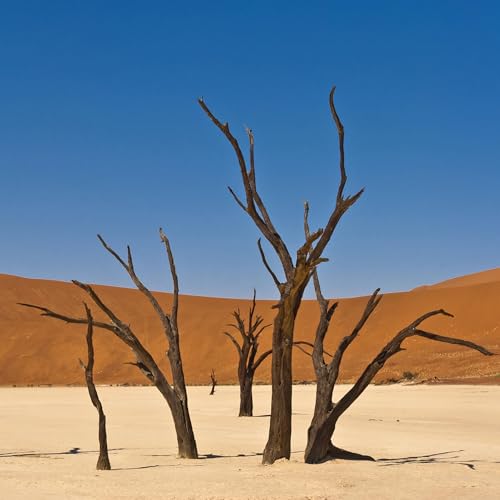In this enlightening episode of 90 Miles from Needles, host Chris Clarke explores the intricate world of bees with Mary O' Brien from Project 1100. The conversation delves into the potentially deleterious effects of honeybee apiaries on public lands, a topic that's both counterintuitive and crucial for the public to understand. Honeybees, although often seen as critical to agriculture and ecosystems, can pose significant threats to native solitary bees that have co-evolved with local flowering plants.
Mary O' Brien sheds light on how these industrious honeybees outcompete their native cousins, impacting pollination dynamics that are vital for the desert's diverse flora. Listeners will gain valuable insights into the importance of preserving native bee species, the complexities of their ecological roles, and the nuanced implications of honeybee proliferation. O'Brien also shares practical strategies for those interested in conservation, emphasizing the importance of habitat protection and mindful consumerism when it comes to honey and pollinator support.
Key Takeaways:
-
Honeybees, although widely supported and utilized in agriculture, can have adverse effects on native bee populations, outcompeting them for resources and spreading diseases.
-
The high reproductive rate of honeybees poses a threat to native plants relying on solitary native bees for pollination, potentially destabilizing ecosystems.
-
Public lands serve as critical refuges for native bee species, which are often overlooked in conventional conservation discussions.
-
Consumers can contribute to bee conservation efforts by choosing their honey responsibly and fostering habitats for native pollinators.
-
Regulatory frameworks around public land usage play a significant role in the sustainability of native bee populations, calling for increased transparency and stakeholder engagement.
Notable Quotes:
-
"Trying to save bees by saving the honeybee is like trying to save birds by saving the chicken."
-
"Native bees evolved in tandem with flowers, and honeybees are not very good pollinators of many species of plants."
-
"Once you know native solitary bees are in your world, you really can delight in seeing such diversity."
-
"Public lands are the wildflower repositories for the Western U.S.; especially in the desert."
-
"It's often quite attractive to think that you're buying wildflower honey; however, you're almost certainly buying honey that was produced on public land."
Resources:
-
Project 1100 Website
-
Xerces Society for Invertebrate Conservation
-
The Forgotten Pollinators by Stephen Buchmann and Gary Nabhan
-
Common Bees of Western North America laminated guide
-
Center for Biological Diversity resources on pollinators:
Discover the intricate dynamics between honeybees and native pollinators and why preserving the biodiversity of our desert ecosystems is more crucial than ever. Listen to the full episode to deepen your understanding of this vital subject and stay tuned to 90 Miles from Needles for more insightful discussions on desert conservation.
Podcast episode artwork: Mojave poppy bee (Perdita meconis). Photo courtesy Zach Portman / University of Minnesota Department of Entomology via the Nevada Independent.
Become a desert defender!: https://90milesfromneedles.com/donate
See omnystudio.com/listener for privacy information.
 55 m
55 m 41 m
41 m 1 h
1 h 41 m
41 m 54 m
54 m 28 m
28 m 30 m
30 m 57 m
57 m
